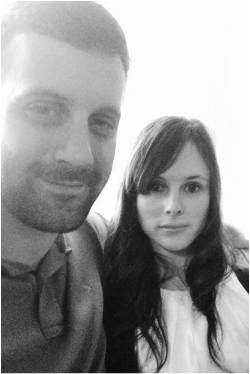
Admittedly, when I started at Christiana last year, the word “classical” was more of a novelty than a word that carried profound and specific meaning. My short time as a member of the Great Books department has utterly changed that. Certainly, this is thanks to the influence of the other Great Books tutors, and the fruit I gleaned while travelling through the Great Books of the Ancient Roman era. Nevertheless, one work in particular stands out in my mind as a source that exploded open my concept of what it means to be authentically classical, which is to say, what it means to be authentically human: Josef Pieper’s Leisure the Basis of Culture.
In this work, Pieper traces the development of Western man’s concept of himself from the pre-modern era into the modern one. In the pre-modern or ancient era of classical antiquity, mankind took it as self-evident that the spiritual realm is not only real, but is the primary plane we as humans operate on. They used this awareness to distinguish what sets humans apart from animals, namely, our rational souls and desire to be one with transcendental truth, beauty, and goodness. In other words, they discerned that reality is objective—it has a definite shape and character that exists outside of our individual perceptions. In order to satisfy our inner longings, we must learn to conform the soul to the shape of this exterior reality through virtue. In the process, we will engage those parts of ourselves that make us human: the intellect, the will, the soul. The disciplines that assist us in our spiritual formation the ancients named the Liberal Arts because they liberate us to be the dignified creatures we are meant to be.
What does any of this have to do with leisure? Pieper explains that leisure for the ancients was not merely relaxing amusement or distraction from life’s “work.” Far from it. For them, true and pure leisure is attained the moment we no longer have to work to conform our mind to truth, our will to goodness, and our emotions to beauty. We will simply and immediately be one with these things without effort. We will discern the spiritual realm as readily and with as much ease as we discern the physical one. (Try for a moment to imagine a world such as this!)
While Pieper takes the time to juxtapose this paradigm with the modern one, the elucidation of the ancient perspective alone was enough for me to recognize things classical as a conscious and intentional effort to accord with reality as it really is. The classical awareness that all is not right with the world and with our own hearts is affirmed not only by a Christian anthropology of fallen man, but existentially and practically the reality of this tension is felt and lived by each one of us.
Every single day, there are countless interactions, moments, and dynamics that we come up against in which we definitively sense the divide between our hearts and God’s reality. Just as ancient pagan man (who, we must remember, was also made in the Image of God), we sense that something is amiss in our souls, something modernism, for all its efforts and denials, has not erased.
In Weight of Glory, C.S. Lewis puts it this way:
We do not want merely to see beauty…we want something else which can hardly be put into words—to be united with the beauty we see, to pass into it, to receive it into ourselves, to bathe in it, to become part of it. That is why we have peopled air and earth and water with gods and goddesses and nymphs and elves—that, though we cannot, yet these projections can, enjoy in themselves that beauty, grace, and power of which Nature is the image. That is why the poets tell us such lovely falsehoods. They talk as if the west wind could really sweep into a human soul; but it can’t. They tell us that “beauty born of murmuring sound” will pass into a human face; but it won’t. Or not yet. For if we take the imagery of Scripture seriously, if we believe that God will one day give us the Morning Star and cause us to put on the splendour of the sun, then we may surmise that both the ancient myths and the modern poetry, so false as history, may be very near the truth as prophecy.
At present we are on the outside of the world, the wrong side of the door. We discern the freshness and purity of morning, but they do not make us fresh and pure. We cannot mingle with the splendours we see. But all the leaves of the New Testament are rustling with the rumour that it will not always be so. Someday, God willing, we shall get IN. When human souls have become as perfect in voluntary obedience as the inanimate creation is in its lifeless obedience, then they will put on its glory, or rather that greater glory of which Nature is only the first sketch.
Indeed, God willing, our souls can be transformed from fallenness to perfect sanctity. Stepping into a classical mindset means stepping into the light of this journey as the context of our humanity.
 RSS Feed
RSS Feed
